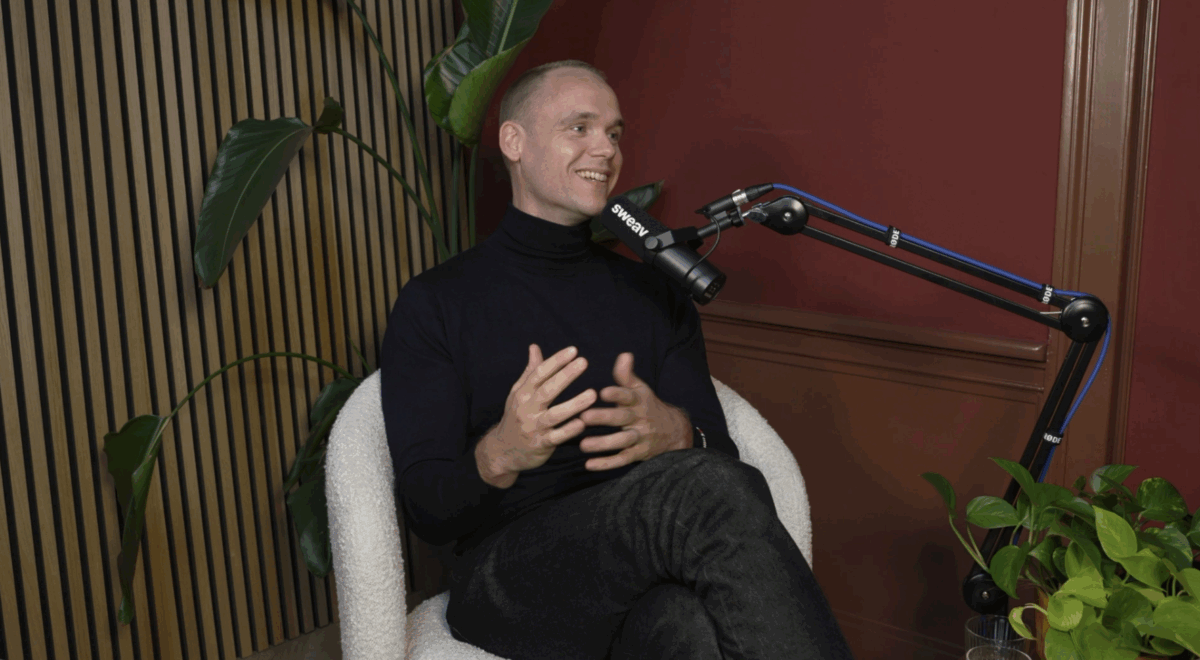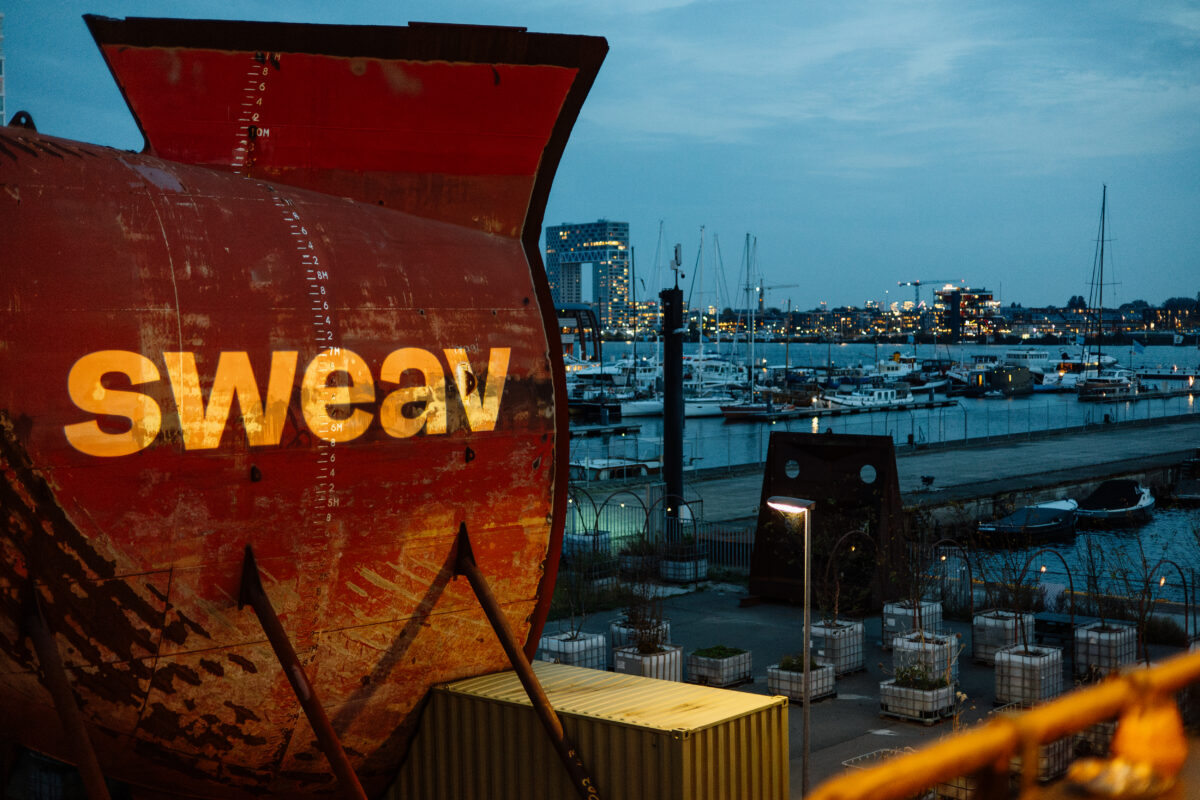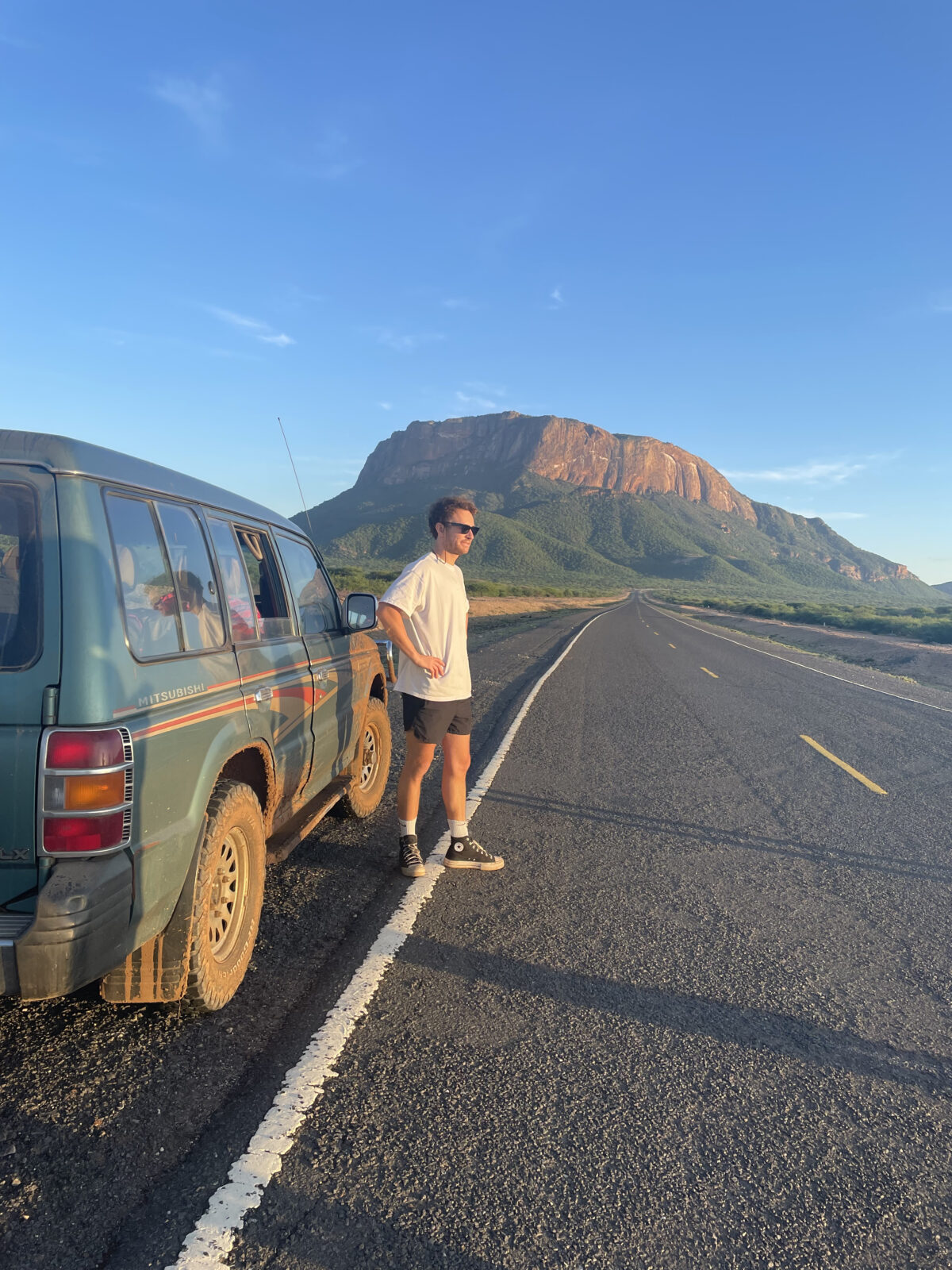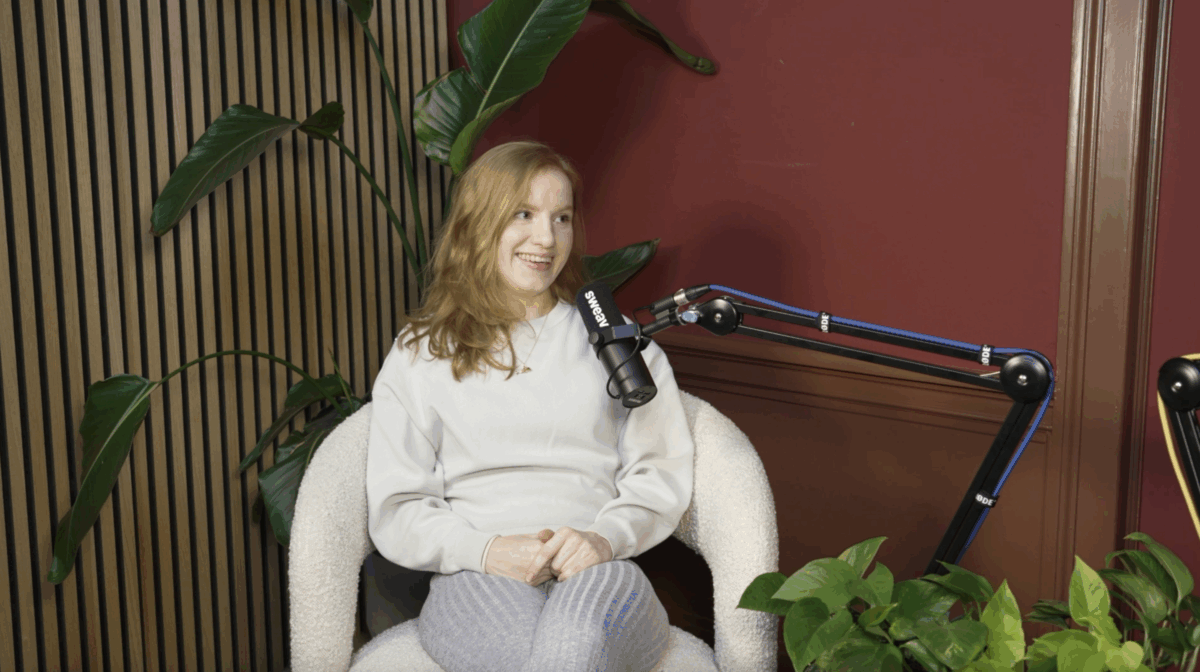


Some things we didn’t see coming in 2024. We didn’t guess anyone would find a way to make freelance pensions interesting, for instance, but our community made it happen (you can make anything happen with Sweav).
Nevertheless, we made some solid predictions about mid-markets, private equity firms, scaleups, corporates – and the freelance strategy and M&A professionals supporting them. We expected to see:
- More growth-focussed projects in the energy transition
- Increased total demand for efficiency and growth focussed project support
- Greater demand for freelancers in commercial due diligence projects, with private equity firms in particular
Now, at the beginning of 2025, we have some internal statistics suggesting we were right:
- A growing reliance on freelance consultants across various industries
- High growth in freelance projects in sustainability
- Greatest demand for freelancers in commercial due diligence, pricing and business plans
Let’s dig further into what’s happening.
Viva la Revolution: The freelancer model vs traditional consulting
The most elite strategy and M&A professionals are becoming more accessible for mid-market firms, scaleups and private equity firms – because they’re no longer staying behind the walled garden of the big traditional consultancies.
At Sweav in 2024, the average daily fee for a consulting project was €1275 – consistent in comparison to 2023. And most projects had a daily fee of between €1100–€1600. That’s a far from what you’d find at most traditional consultancy firms:



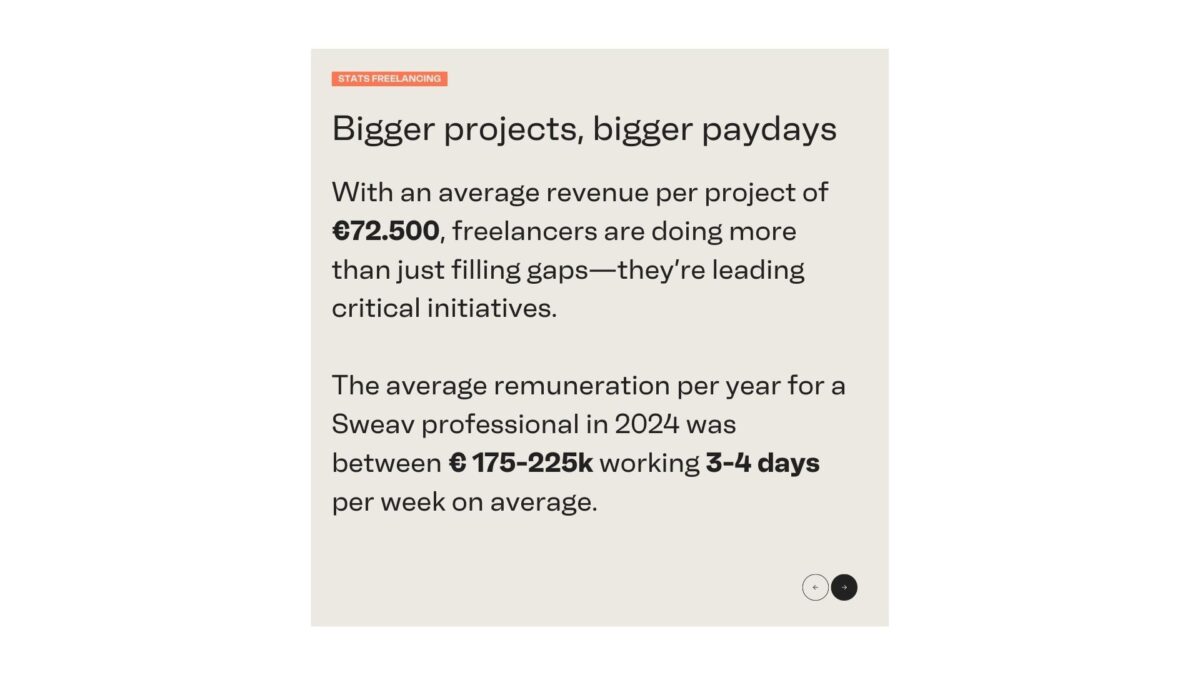
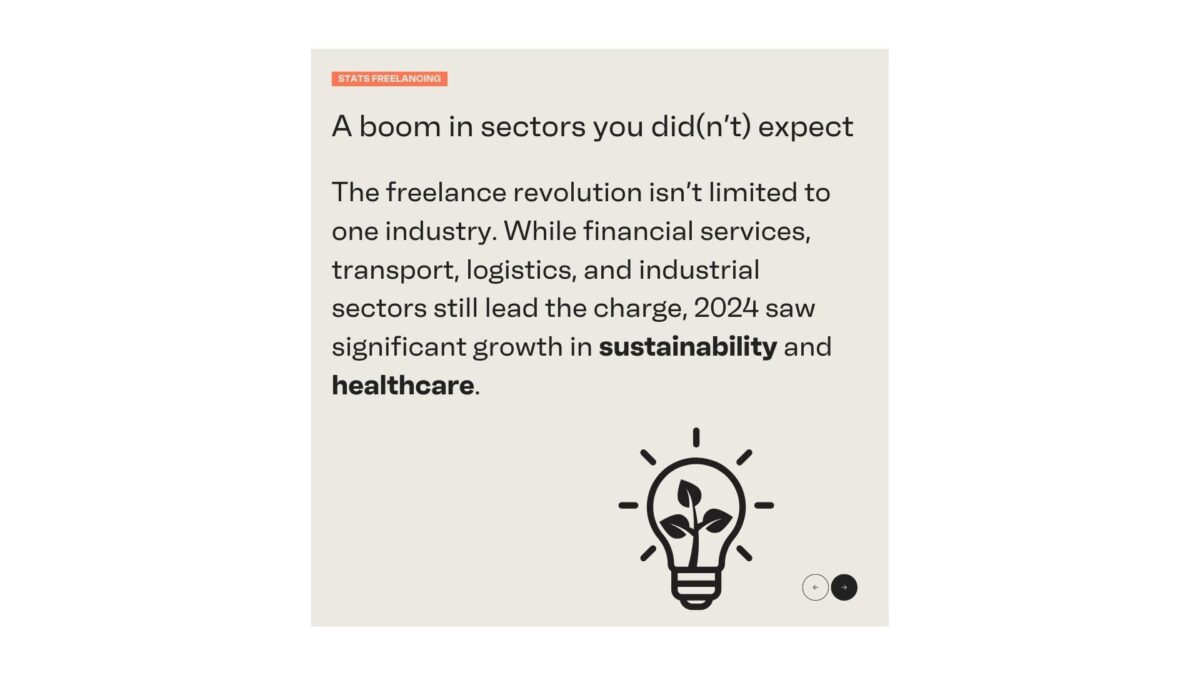
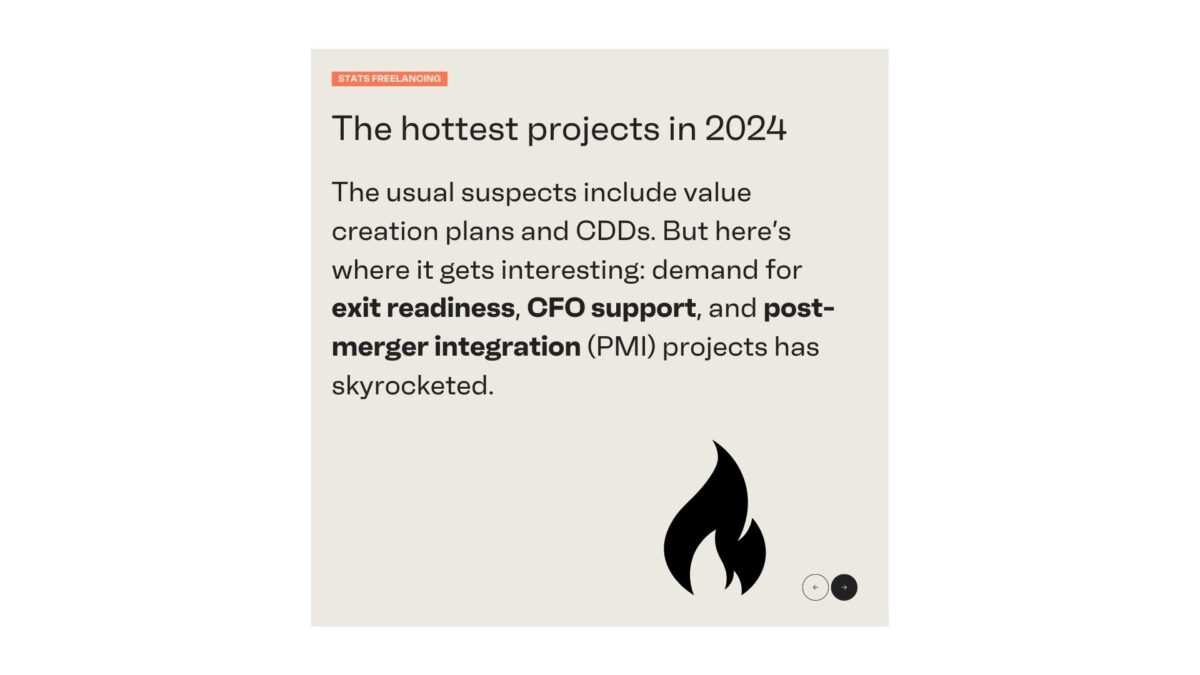
And it’s not just newer and smaller companies that have more power in this new and more affordable world. The larger corporations out there can also more freely choose when to use a traditional consulting firm and when not to.
More companies are trusting freelance consultants with core business areas
Back when people thought price was a proxy for quality, they’d only consider a freelance consultant for the simplest or most easily defined projects.
Now people are waking up to the fact that freelancers are often more experienced than their big-firm counterparts (especially if they’re part of a curated community) and they’re capable of carrying out the most sensitive and challenging of tasks.
In 2024, we saw a high increase in demand for projects related to exit readiness, CFO support and PMI/carve-outs. And the highest demand was for support with business plans, commercial due diligence and pricing.
You can also get an idea for how companies are using freelancers by looking at the duration of projects. Only 15% of projects lasted less than one month and 25% extended beyond six months (and the average was four-to-five months). The implication is this: Companies are trusting freelancers with longer, more complex and end-to-end projects.
Although the highest demand for freelancers was in financial logistics and industrial sectors, in 2024 we saw growing reliance on freelance consultants across different industries. High growth in freelance projects in healthcare and sustainability suggests that traditional consulting firms no longer have such a firm grip on these sectors.
Consultants are having a better time going freelance
Freelancing is not for everyone, and neither is working with Sweav. When our founders Joeri and Thijmen reflected on our first two years, they noted that Sweav is the best fit for professionals who are eager and have the fire within them to fix stuff, whatever it is.
The consultants that are the right fit are having a good time at Sweav. In 2024, the average remuneration Sweavers received per project in 2024 was €72.500, and the average per year was between €175-225k – and that’s working on average three-to-four days per week.
For consultants that might love the idea of freelancing but hate the idea of hustling to build up a client base on their own, this level of income comes as a welcome relief.
And yes, a three-to-four day a week really is the average for freelancers here
Because most projects are on a part-time basis, Sweav freelancers are getting time to work on other projects.
For instance, Martin Dyer and Derek Beeftink are ex-BCG consultants who completed freelance consulting projects for clients like Uber Eats – but that’s not all they did. The part-time nature of their work is enabling them to follow their entrepreneurial spark, working with another partner to build a new business – Stretch & Fold – which comprises a yoga studio, seasonal cafe, and spa with a rooftop pool.
All this isn’t just to say freelance consultants are having a nicer time than their traditional-consultant counterparts (although they certainly seem to be!).
It also means they bring less burnout to the projects you’re hiring them for – as well as a broader, more hands-on kind of experience. These are not people who live their lives in Excel spreadsheets and PowerPoint decks…
- Marieke Berendsen is a Sweaver launching her own menswear brand.
- Nuno Ferreira launched Fern Business Building while consulting for a geoscience company.
- Lisette van Niekerk is an ESG specialist who trained as a Safari guide and is considering how to run a sustainability course for decision-makers out in the bush.
Have you hired a Sweaver yet? We can tell you now: they’re increasingly in demand – particularly in core business areas, sustainability, healthcare and for longer term projects.
So what will 2025 bring? Perhaps it should bring a Sweaver (or two) into your company for a strategy or M&A project. Check out what we can do for private equity, corporates, scaleups and mid-market firms.
And if you’re going freelance, you don’t have to go it alone – now might be the time to join a community like Sweav,

